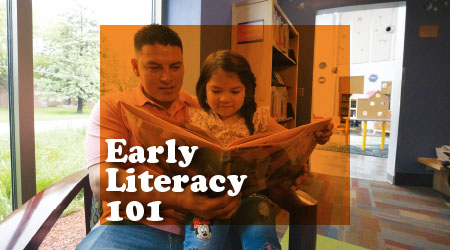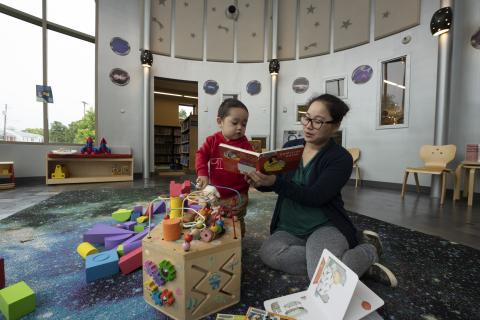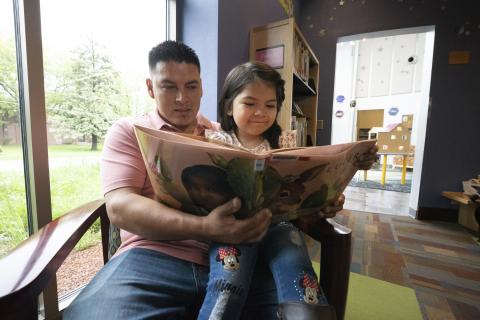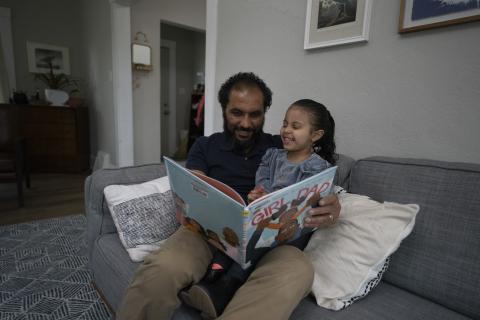

Newborns and Infants (0-12 Months)
- What they’re doing: Babbling, cooing, responding to voices and their name
- What you can do: Talk back-and-forth; let them respond with babble; name objects and play games like peekaboo
- How it helps: It encourages children to try new sounds, respond to prompts, and hear new words
- What you should read: Board and cloth books, high contrast books; books with baby faces

Toddlers (Ages 1-3)
- What they’re doing: Saying words and phrases; naming objects; handing books to adults; completing sentences in familiar stories
- What you can do: Use books in family routines; let your child turn the pages; ask simple questions about books and objects; answer when your child talks
- How it helps: It allows children to connect words with real life objects and ideas; it puts books in a prominent position in children’s lives
- What you should read: Board books; rhyming books; books that name things; picture books that tell stories

Preschoolers (Ages 3-5)
- What they’re doing: Reciting phrases from books; recognizing letter names and sounds; retelling familiar stories
- What you can do: Make up stories about pictures in a book; point out letters in a child’s name; point out words and pictures that begin with the same sound; let your child pick out their books
- How it helps: It helps children hear sounds, syllables, and rhymes within words, increasing their phonic skills. It also helps children learn about exciting stories told through reading.
- What you should read: Picture books with longer stories; counting and alphabet books; fairy tales and legends; anything your child is interested in

Early Elementary (Grades K-3)
- What they’re doing: Learning spelling rules; using context to sound out unfamiliar words; using punctuation; writing notes
- What you can do: Take turns reading aloud to each other; help them sound out unfamiliar or challenging words; ask them to predict what will happen next in a story; let them see you read
- How it helps: It builds an understanding of vocabulary and language structures that strengthen their reading comprehension and builds confidence in their ability to read
- What you should read: Short chapter books; graphic novels; long stories with minimal pictures; whatever your child wants to read